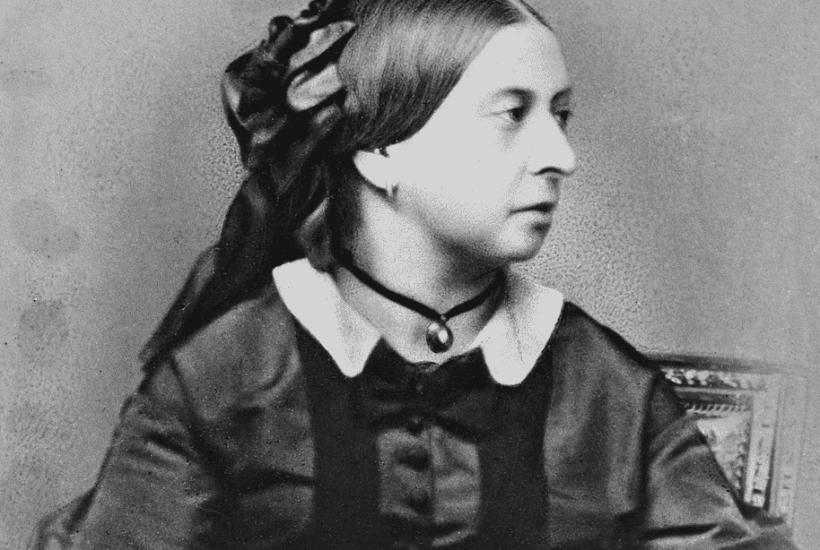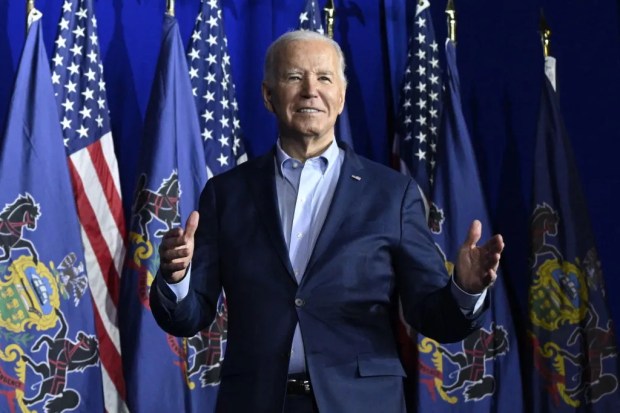The United States hasn’t always reacted rather snidely to the death of the British monarch. Below is The Spectator’s lead piece following the funeral of Queen Victoria in 1901, available on our fully-digitised archive.
Nothing has been more striking, nothing more moving to the British as a nation, than the way in which the Queen has been mourned and her memory reverenced in the United States. The English-speaking people of America almost with one voice have joined the English-speaking people of the British Empire in their expressions of affection for the Queen. The outside world has wondered at the spectacle, and has asked how it comes about that a people who are always anxious to proclaim their Republicanism and their indifference to the claims of Monarchy have held a national mourning for a foreign Queen. Even Englishmen have not quite understood the true nature of American feeling, and have sought about for special explanations of the way in which the people of the United States have been moved. Some have thought to find an explanation in the fact that the Queen took the side of the Union in the Civil War, and was always politically a firm friend of America; others declare that the Queen’s domestic virtues specially appealed to the American people; while others again trace America’s grief to the fact that Americans honour womanhood beyond other nations, and that the Queen was the representative of all that is best in woman.
No doubt in a sense all these reasons are true, but they are not by themselves sufficient. The true explanation lies much deeper, though it includes those just stated. The American people have felt the Queen’s death so deeply because they and we belong to the same race, speak the same language, follow the same ideals, moral, social, and political,—because, in brief, truth, justice, freedom, honour, honesty, sincerity, and “the conduct of a gentleman” mean not something that needs a shade of difference in translation, but exactly the same things to them and to us. Americans and Englishmen are, as Carlyle said, all subjects of King Shakespeare. They all vibrate to the deep elemental emotion of Wordsworth, to the passion of Byron, to the magic splendour of Scott. These are the essential reasons why the American people felt the death of the Queen as we felt it ourselves, and not as foreigners. They were sharers in our sorrow, while the foreigner, however much he was struck by the Queen’s high character, and however anxious he was to show his respect, was merely an external sympathiser. Theirs was no complimentary mourning, for they are of the house. The feeling expressed by the American people is, in fact, a proof of the essential oneness of the English-speaking race. It is impossible for any person, Sovereign or President, poet or divine, philosopher or weaver of romance, to rise to the very highest place in either land without becoming the common property of both peoples.
Say what we will, we are sharers in the really great. The smaller men are sectional, and may belong exclusively to one nation, but in the highest both have a share. We English felt this in the case of Mr. Lincoln. For a time he belonged only to America, and was ignored and misunderstood by a large part of our people. But gradually his transcendent qualities of heart and head won their way among us, and when he died we realised that he belonged to the whole race. In the famous lines in Punch written on Mr. Lincoln’s death, even “the ribald jester” claimed a right to stand in sorrow by the President’s bier, and no American wished to challenge that right. The British nation recognised in the dead President a representative of what was highest and noblest in the English-speaking kin, and ever since his memory has been well nigh as much revered here as in the United States. It is the same with Washington. No Englishman ever dreams of thinking of Washington in the way he thinks of foreign national heroes. He may admire and respect the foreigner, but for the American there is always in addition that thrill of emotion which is added by the freemasonry of race, language, and the tradition of kindred moral ideals. No doubt it is only very rarely that any man or woman in either nation can rise to the height of becoming a common heritage. Scott may be said to have achieved it in literature in a former generation, and possibly Tennyson in this, for we doubt if any American regards Tennyson as merely a “Britisher.”
But be that as it may, the Queen certainly achieved this glory, and as the representative of what is noblest in public and private life has taken her place in the hearts of both branches of the race. It is no mere rhetorical flourish for Americans to say that they felt for her as “our Queen.” That this desire of both peoples to share in what is best in either may long continue is our earnest wish. It is our belief that it will and must continue as long as we speak the same language and read the same Bible, and as long as Mr. Lincoln and the Queen remain as examples of public duty. As long as we strive to obey the same standards of conduct, we must admire the same human qualities; must feel the same reverence for those who possess them; must experience the same sense of grief at their loss; and must show the same pride in the memory of the great dead. It was, in truth, inevitable, the Queen being what she was, and the Americans being conscious of her high qualities, that they should be almost as deeply touched by her death as we were, and should feel our loss almost as if it were their own. Though not in a political, yet in the moral sense there is a blank in their lives as in ours. A living reminder of what is the true standard of public and private duty has passed away from them as from us.
We have dwelt above on the general feeling of the American people for the Queen, and the influences and conditions underlying it. It will, however, be not inappropriate to remark also on the very special and quasi-personal relations that existed between the Queen and the various Presidents of the United States. We do not believe we are exaggerating when we say that almost every member of the long succession of American Presidents who held that high office during the Queen’s reign at some time of his tenure of office felt instinctively that he was in a special relation with the presiding Sovereign and representative of the other half of the English-speaking race, and that this feeling was reciprocated by the Queen. The greatness of the charge placed on either, and the instinctive sense of copartnership in the joint task of presiding over the Anglo-Saxon kin, created a feeling of sympathy which, even when unconscious, must have had great results. One sees an indication of the personal ties thus created in the letters written by the Queen to the widows of the two Presidents who died at the White House during her reign,—Presidents Lincoln and Garfield. Whether any of the other Kings or Queens of Europe wrote letters on those occasions we do not know, but we may be sure that if they did they were of a perfectly different kind. These letters to Mrs. Lincoln and Mrs. Garfield were, if we remember rightly, made public; but did the Queen ever write or receive private or quasi-private letters from the Presidents of the United States? Possibly it would have been considered constitutionally undesirable at Washington and in London to enter into such direct communications, but if any correspondence of this kind exists it should prove extremely interesting. In any case, it is abundantly clear that the Queen always took the most keen and personal interest in the fortunes of the denizens of the White House, and with her perfect tact never expressed her feelings in a way that could possibly appear or be represented as “patronising.”
The Queen in her long life had known many Americans, and had many American friends, men and women, and though she had never been to America, she had doubtless a very accurate notion of the trend of American feeling and opinion. She clearly understood the people of the United States, for she never once made a mistake in regard to America, and never by her personal action did anything that was resented or disliked in America. She was, in truth, the “great and good friend” of the American people, as they were hers, and when their Presidents addressed her in that formal phrase of diplomacy the words rang true.
Got something to add? Join the discussion and comment below.
Get 10 issues for just $10
Subscribe to The Spectator Australia today for the next 10 magazine issues, plus full online access, for just $10.



















Comments
Don't miss out
Join the conversation with other Spectator Australia readers. Subscribe to leave a comment.
SUBSCRIBEAlready a subscriber? Log in